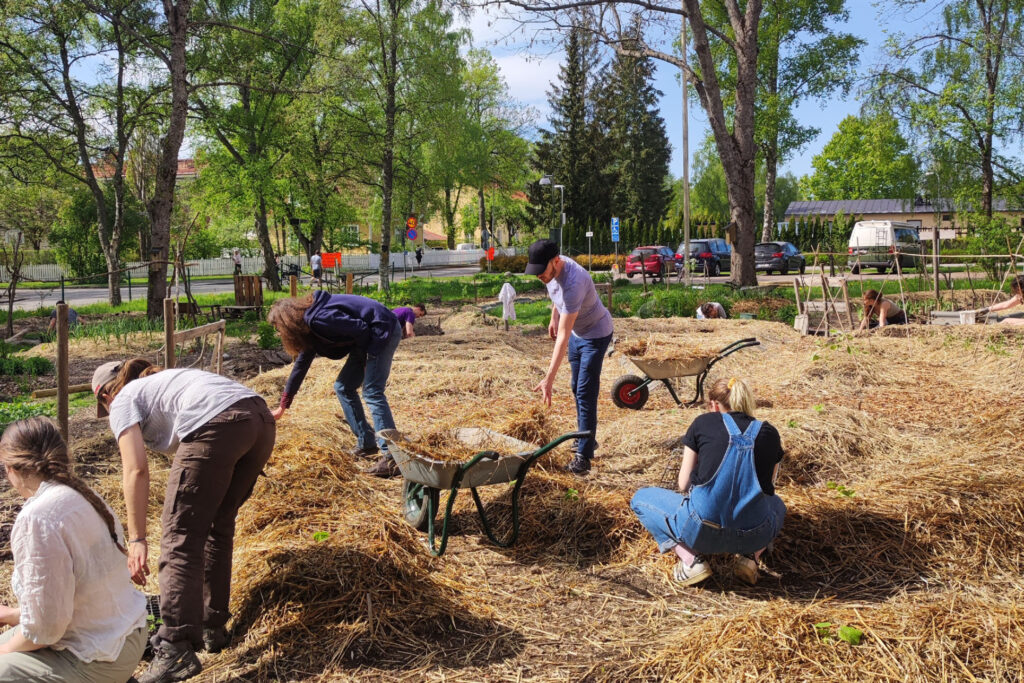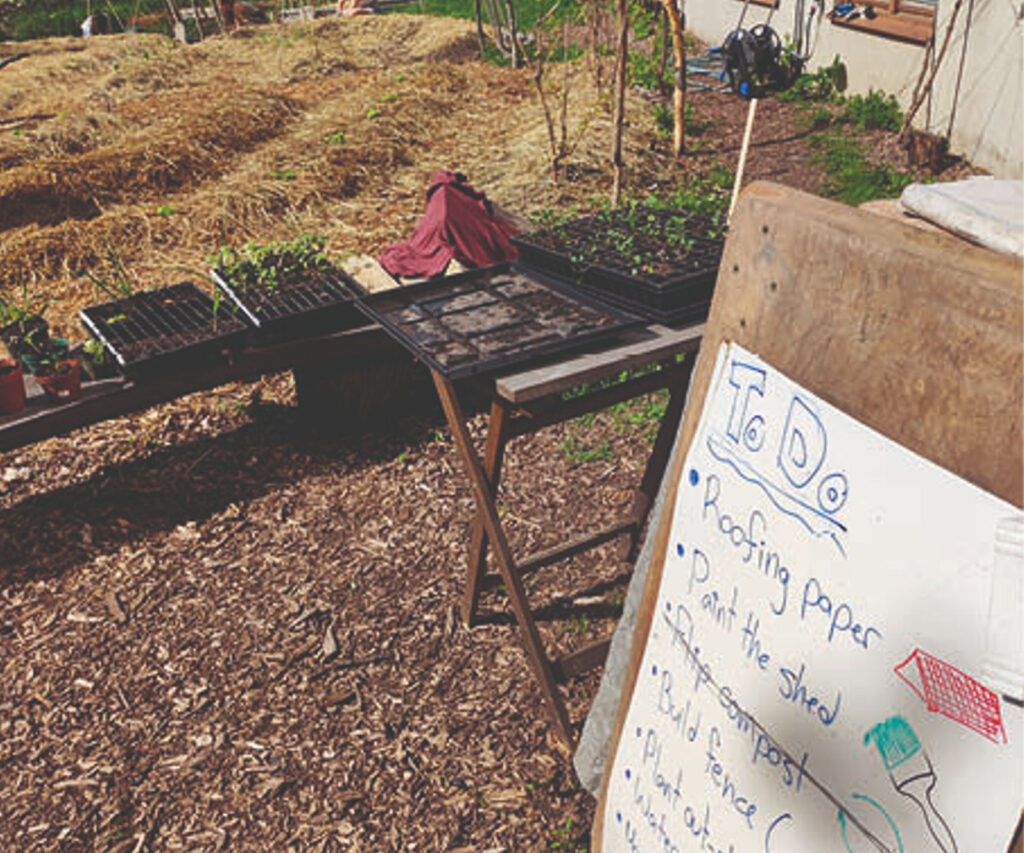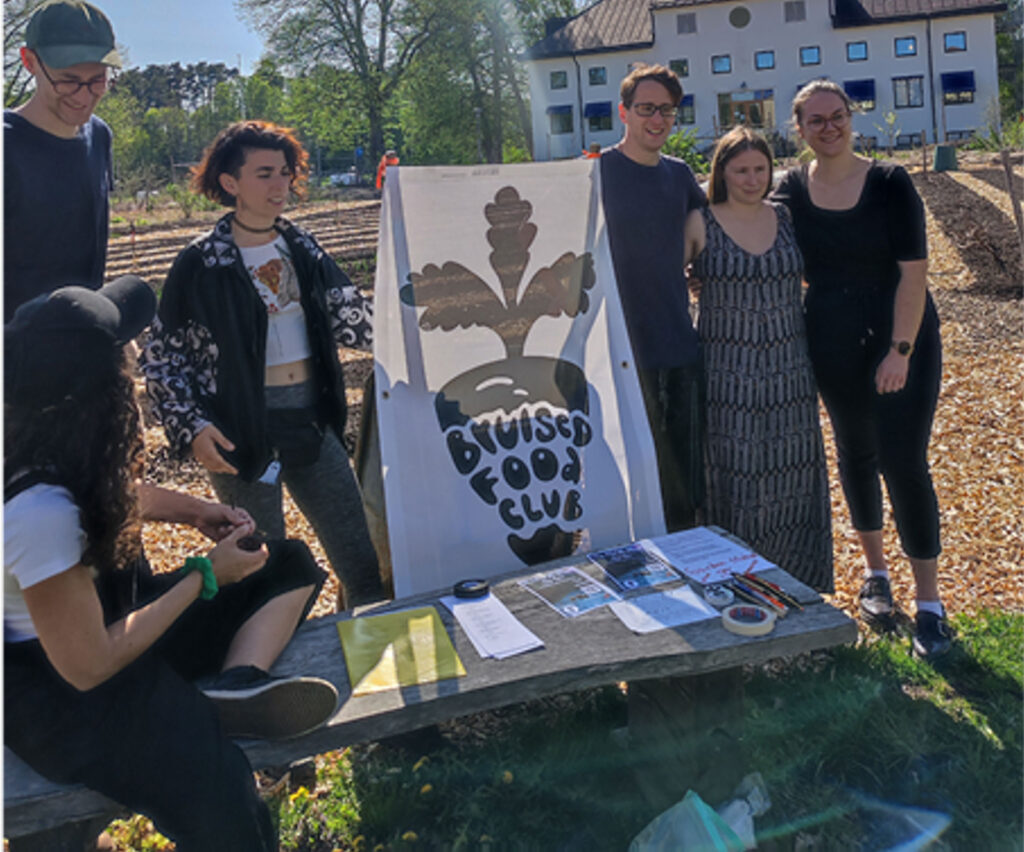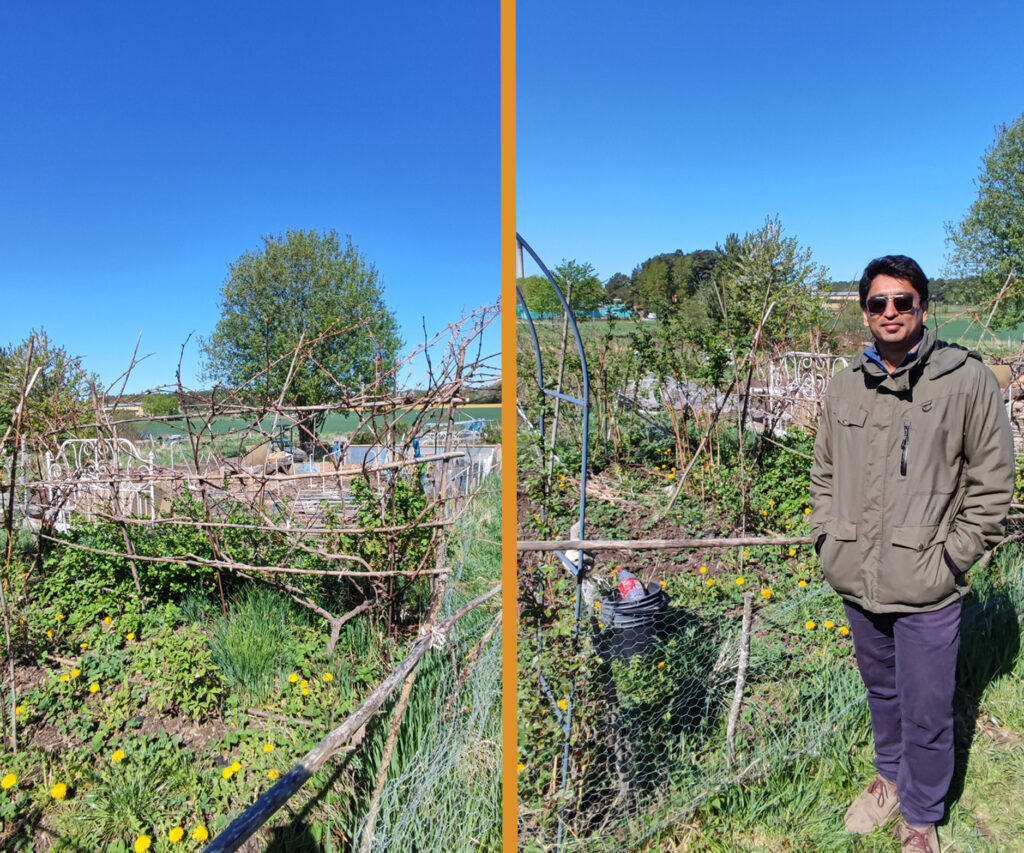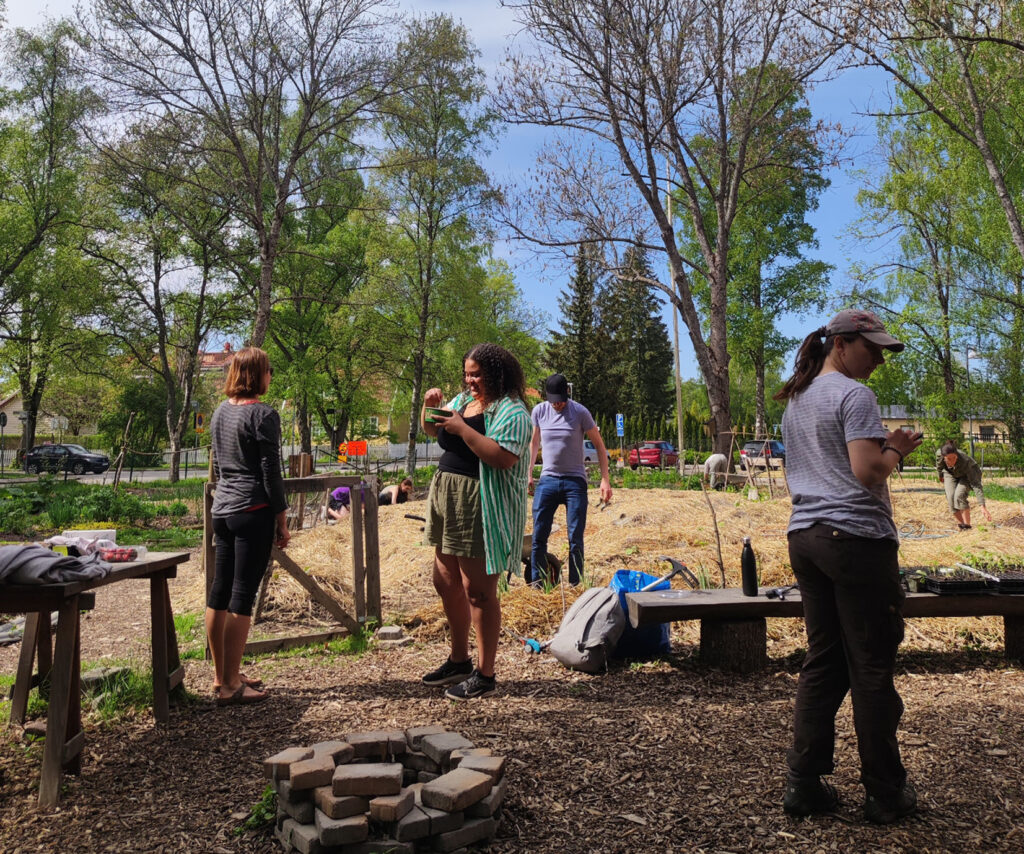This is an interview piece with Ultuna Permakultur at the SLU Ultuna campus in Uppsala, Uppsala University (UU) Campus Garden, and Masud Parvage.
In the vibrant student city of Uppsala, youth have become increasingly enthusiastic about permaculture. Permaculture focuses on diversity and resilience while offering innovative solutions to meet human needs and protect the environment. This article explores Uppsala’s thriving urban farming movement, emphasising on urban gardens as hubs for student communities. By conducting interviews with passionate individuals driving these initiatives, we uncover how urban gardens empower young minds, foster inclusive communities, and drive sustainable practices. Join us as we delve into the role of permaculture in shaping resilient and socially conscious youth-led movements.
Ultuna Permakultur: Pioneering Sustainable Agriculture
Two brothers, Max and William, established Ultuna Permakultur in 2020, a permaculture garden at the SLU Ultuna campus in Uppsala. With the support of enthusiastic students, the garden quickly thrived, serving as a hub for approximately 130 ambassadors. Embracing diversity in both members and crops, Ultuna Permakultur promotes health benefits and resilience by cultivating a wide array of plants. Challenges such as limited resources and weather fluctuations have tested their dedication, but they continue to strive for sustainability through organic practices, donations, sponsorships, and waste reduction initiatives like biochar production. Ultuna Permakultur envisions a future where urban gardens flourish in Uppsala, connecting people to the land and each other, and inspiring sustainable living. The initiative exemplifies community, resilience, and a shared commitment to nurturing the earth.
